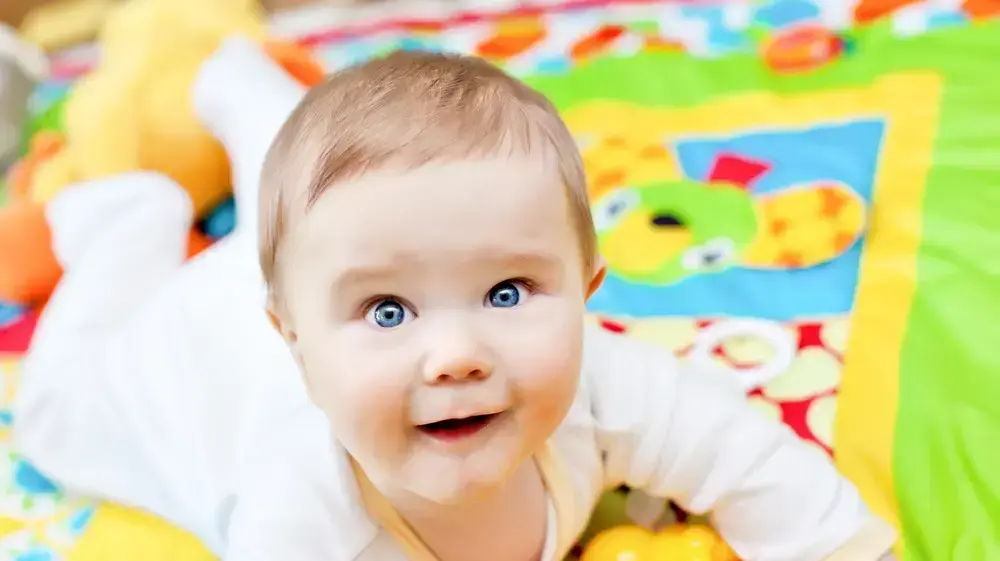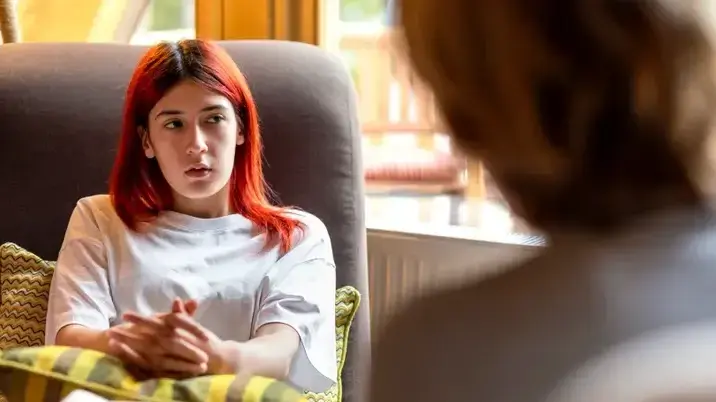health
New parents
Mom, where are you ?!
Everything you need to know about abandonment anxiety
What does the baby realize towards the age of one that makes him grumble when you walk away?
And can it be eased?
Dana Lev, an early childhood parent facilitator, invites you to get acquainted with the anxiety of abandonment
Tags
parents
Children
Daniel Sarantsky, in collaboration with JAMA
Monday, 02 August 2021, 06:55 Updated: Thursday, 02 September 2021, 06:36
Share on Facebook
Share on WhatsApp
Share on general
Share on general
Share on Twitter
Share on Email
0 comments
Suddenly, one bright day, you discover that you can not move away from your baby for a second without him crying and demanding that you stay within his line of sight.
It happens, usually, around the age of 8-9 months and it can be demanding and difficult (as if until now there has not been…).
Dana Lev, an early childhood parent facilitator, invites you to get acquainted with the anxiety of abandonment.
At the beginning of the baby's life he does not notice the characters caring for him.
Little by little he develops an understanding of what actions, movements or sounds can cause the primary therapist to come.
At the same time, he does not understand that things exist if he does not see them.
If you hide a particular toy, as far as the baby is concerned it just does not exist.
More on Walla!
NEWS
Not a waste of money?
The trick that will arrange for you the next purchase at the supermarket
To the full article
So what happens from the age of 8-9 months?
First, the displacement in space begins.
Most babies are already crawling, meaning there is a distance from the mother and they are discovering more independence, although they will still want the parent’s closeness.
At the same time, the concept of "object determination" begins to take shape.
The baby understands that something is going on even when he does not see it, and you will feel it especially when he cries, wants more hands and cries when you walk away or are about to leave the house.
As for the nights, the baby will experience sleep as a real parting.
It is possible at this age that there will be regression in sleep or that the anesthesia will be longer.
The baby may want to relax only on you or in your presence with touch.
This is an important developmental stage that every baby goes through.
Baby lying on his stomach (Photo: ShutterStock)
How long does this phase last?
This is an important developmental stage that every baby goes through, and in each one he will experience a different intensity.
At the age of two, the anxiety of abandonment will reach its peak and it will pass around the age of 3. Of course, this is a period with peaks and you will not experience it with strong intensity during all this time.
It is important to remember that it is temporary, that the baby needs to go through this stage and you must give him the feeling of security and at the same time also let go and allow him independence.
What should you do during the day?
● Talk to the baby beyond the walls, when you and he are in separate rooms, so that he understands that the mother is still present even if he does not see her.
● "Coco" games when you hide behind a sofa, a small blanket, etc. Hide both yourself and the baby and finally "expose" you or him.
● Practice leaving the room (for a few minutes) when you say "Mom is coming back". It is advisable to continue talking while you are out with the baby. When you come back, it's important to close the circle and say "here's mom back".
● If the baby is crying and wants you, it is important to talk calmly, to let him know that everything is fine and that you will be here. Do not react hysterically and do not give him pressure, because then he will think that he really has something to fear. The idea is to try to give an answer gradually: first approach and try to calm him down and talk to him. If the baby is still crying, get closer, pat him, talk to him and of course if the crying continues - pick him up.
● Parting in the garden should be done in an orderly manner.
You can say goodbye in a short ceremony and say you will come back to pick it up later in the day.
It is very important not to disappear.
Children have no sense of time and the disappearance will only intensify the anxiety.
On the other hand, do not continue the separation because here too, it will make the child realize that he has something to fear.
It is certainly difficult to hear the child crying, so give him a strong hug, tell him how much you trust him and say goodbye while you trust the kindergarten staff.
It is recommended to devote more time to the sleeping ceremony.
Children sleeping with a teddy bear (Photo: ShutterStock)
What is recommended to do for the night?
● It is possible to give the baby a transitory object. This can be a doll, a small pillow, a small blanket, a cloth diaper, etc. It is advisable to choose something that if it is destroyed or lost you can recover. You can soak the object in your scent, and if you are breastfeeding, you can spray a little breast milk. To like the transition object on the baby can be played together during the day so that it has a positive connotation to it.
● It is recommended to devote more time to the sleep ritual, conduct it calmly and reduce stimuli. The gradual darkness of the room and the house and speech in a pleasant and quiet manner. In addition, it is advisable to say goodbye to the members of the household and wish everyone a good night. You can also say goodbye to dolls or toys that the baby especially likes. Remind him to go to bed and in the morning when the sun rises you two will get up and be together again. At the sleeping ceremony it is recommended to be physically close to the baby, to hug, give a touch (massage is possible) and give him that time he needs for a good and relaxed entry into sleep.
● If the baby wakes up before entering the room, talk to him in a soothing voice or whisper "shhh ..." to let him know that you are right outside the door.
● If there is a regression in sleeping habits, you can go back for a few days to give the baby the confidence he needs, even if it means putting most presence, touch and time to sleep.
The Jama app was established with the aim of addressing mothers of babies from birth to age three, and centralizing for them content, activities, tips from experts and videos that will accompany them throughout this challenging period.
All the content in the app "grows" together with the baby and is precisely adapted to its developmental stages, so that the mothers receive only what is relevant to them and interests them at any given moment.
The Jama app is the place for mothers in Israel to meet and get to know other mothers around them, and create new and exciting friendships in the fascinating journey.
Search us on Google: https://app.jama.co.il/
Share on Facebook
Share on WhatsApp
Share on general
Share on general
Share on Twitter
Share on Email
0 comments















/cloudfront-eu-central-1.images.arcpublishing.com/prisa/IGZ7GOCXZ5GUPAQ2HWGK6Z76BU.jpg)